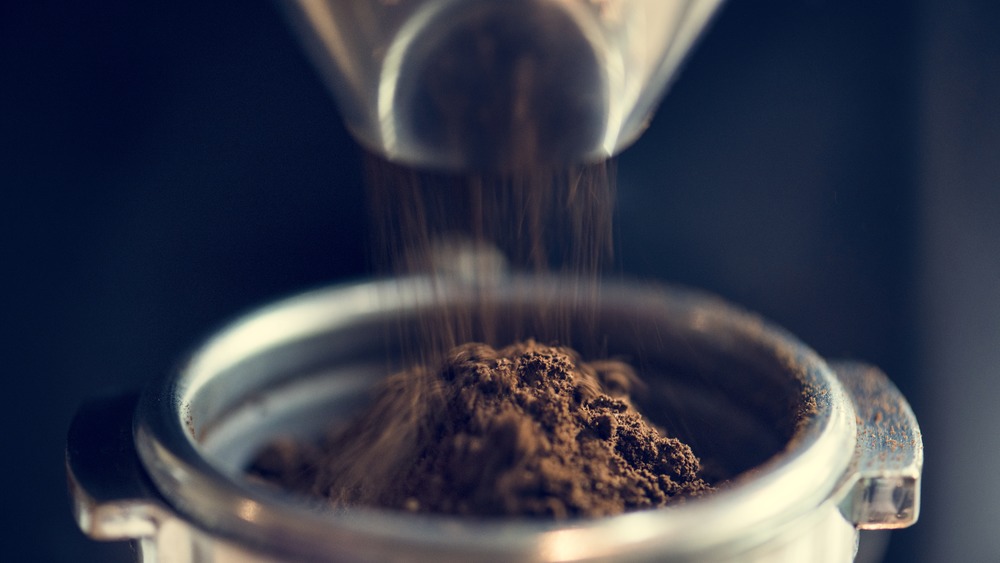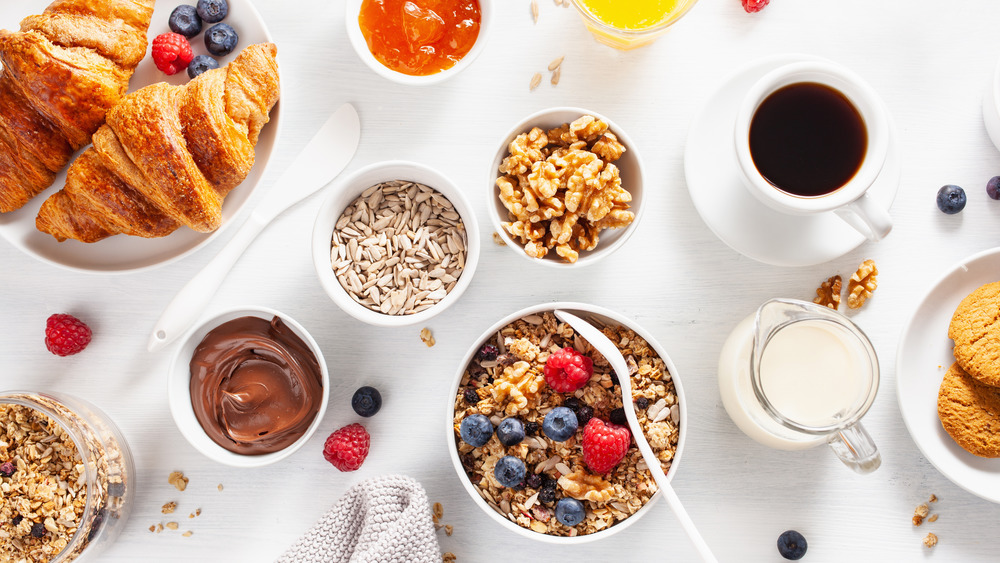Why You May Want To Avoid Drinking Coffee Before Breakfast
Reaching for coffee first thing in the morning could knock your blood sugar out of whack for the rest of the day, according to a new study published in the British Journal of Nutrition. Researchers from the Centre for Nutrition, Exercise & Metabolism at the University of Bath in the United Kingdom suggested having your morning caffeine after you eat to lessen your risk of developing diabetes and heart disease (via Eat This, Not That!).
About 30 healthy men and women participated in the study, which monitored their blood sugar levels after a normal night's sleep and a "disrupted night's sleep." The researchers also looked for any effect on the participants' blood sugar in the morning after eating a "sugary drink" that mirrored a typical breakfast and after consuming strong black coffee 30 minutes before the breakfast drink (via the University of Bath).
While the difference in sleep quality didn't affect the participants' blood sugar levels, the caffeinated coffee did. The participants' blood sugar jumped by 50 percent when they drank coffee on an empty stomach, then consumed the breakfast drink, the university said.
Eat first, then have coffee to better regulate your blood sugar, researchers say
In other words, coffee may wake you up, but it can create another problem by limiting your body's ability to process and tolerate glucose, the study said. Glucose is a type of sugar that the body obtains from food and uses for energy (via WebMD). After we eat, our blood sugar levels rise, then drop hours later as insulin, a hormone that the blood produces, moves glucose into the body's cells for energy and storage.
"We know that nearly half of us will wake in the morning and, before doing anything else, drink coffee — intuitively the more tired we feel, the stronger the coffee," Professor James Betts, who oversaw the research, said in a university news release. "Put simply, our blood sugar control is impaired when the first thing our bodies come into contact with is coffee, especially after a night of disrupted sleep. We might improve this by eating first and then drinking coffee later if we feel we still feel need it."
Worldwide, people consume about two billion cups of coffee daily, according to statistics the university provided. Other studies show coffee does have benefits, such as improving your mood and helping to reduce muscle soreness. Perhaps try to wait until after eating something before using it to charge up your morning.


